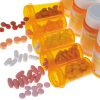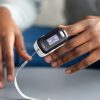- Empty cart.
- Continue Shopping
The Dangers of Mixing Alcohol and Medication

Mixing alcohol with medication is a risky practice that can have serious and potentially life-threatening consequences. Both alcohol and many medications can have significant effects on the body, and combining them can lead to dangerous interactions.
1. Reduced Medication Effectiveness
Alcohol can interfere with the effectiveness of many medications. It can diminish or nullify the intended therapeutic effects of the medication, rendering it ineffective. This can be particularly dangerous if you’re taking medication to manage a chronic health condition.
2. Increased Medication Side Effects
Alcohol can amplify the side effects of medications. Common side effects like dizziness, drowsiness, and nausea can become more severe when alcohol is in the mix. This can impair your ability to function safely and increase the risk of accidents and injuries.
3. Dangerous Central Nervous System Depressant Effects
Both alcohol and certain medications, such as opioids, sedatives, and sleep aids, depress the central nervous system. When combined, they can have a synergistic effect, leading to severe central nervous system depression. This can result in slowed breathing, extreme drowsiness, loss of consciousness, and, in some cases, overdose and death.
4. Liver Overload
The liver plays a crucial role in metabolizing both alcohol and medications. Combining the two can overwhelm the liver and hinder its ability to process them efficiently. This can lead to an increased risk of liver damage and toxicity.
5. Gastrointestinal Irritation
Alcohol and certain medications, such as nonsteroidal anti-inflammatory drugs (NSAIDs) and steroids, can irritate the stomach lining. Combining them can increase the risk of gastrointestinal bleeding, ulcers, and other digestive problems.
6. Increased Risk of Accidents and Injuries
Alcohol impairs judgment, coordination, and reaction time. When combined with medication, these impairments can be magnified, making accidents and injuries more likely. This is especially dangerous when driving or operating heavy machinery.
7. Worsening Mental Health Symptoms
Mixing alcohol with medications used to treat mental health conditions, such as antidepressants or antianxiety drugs, can worsen symptoms and lead to unpredictable emotional and behavioral reactions. It can also increase the risk of suicidal thoughts and behaviors.
8. Unpredictable Drug Interactions
The interaction between alcohol and medications can be unpredictable and vary from person to person. Factors like the type of medication, dosage, frequency, and individual tolerance to alcohol can all influence the outcome. This unpredictability makes it challenging to anticipate the potential risks accurately.
The dangers of mixing alcohol and medication cannot be overstated. It is a practice that can lead to serious health risks, overdose, accidents, and even death. It’s crucial always to follow your healthcare provider’s instructions regarding medication use and to be aware of any potential interactions with alcohol. If you have any questions or concerns about your medication, including its compatibility with alcohol, consult your healthcare provider or pharmacist for guidance. Remember that the safest course of action is to avoid alcohol when taking medication to ensure your health and well-being.








